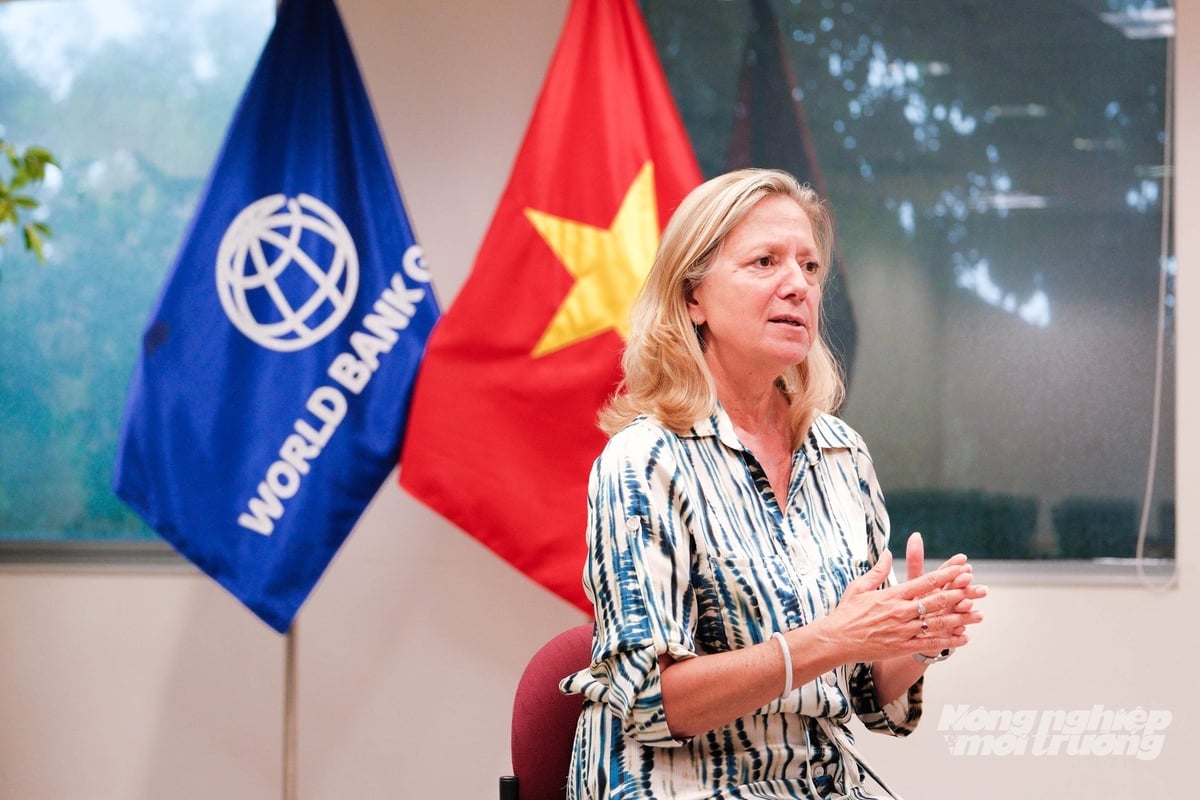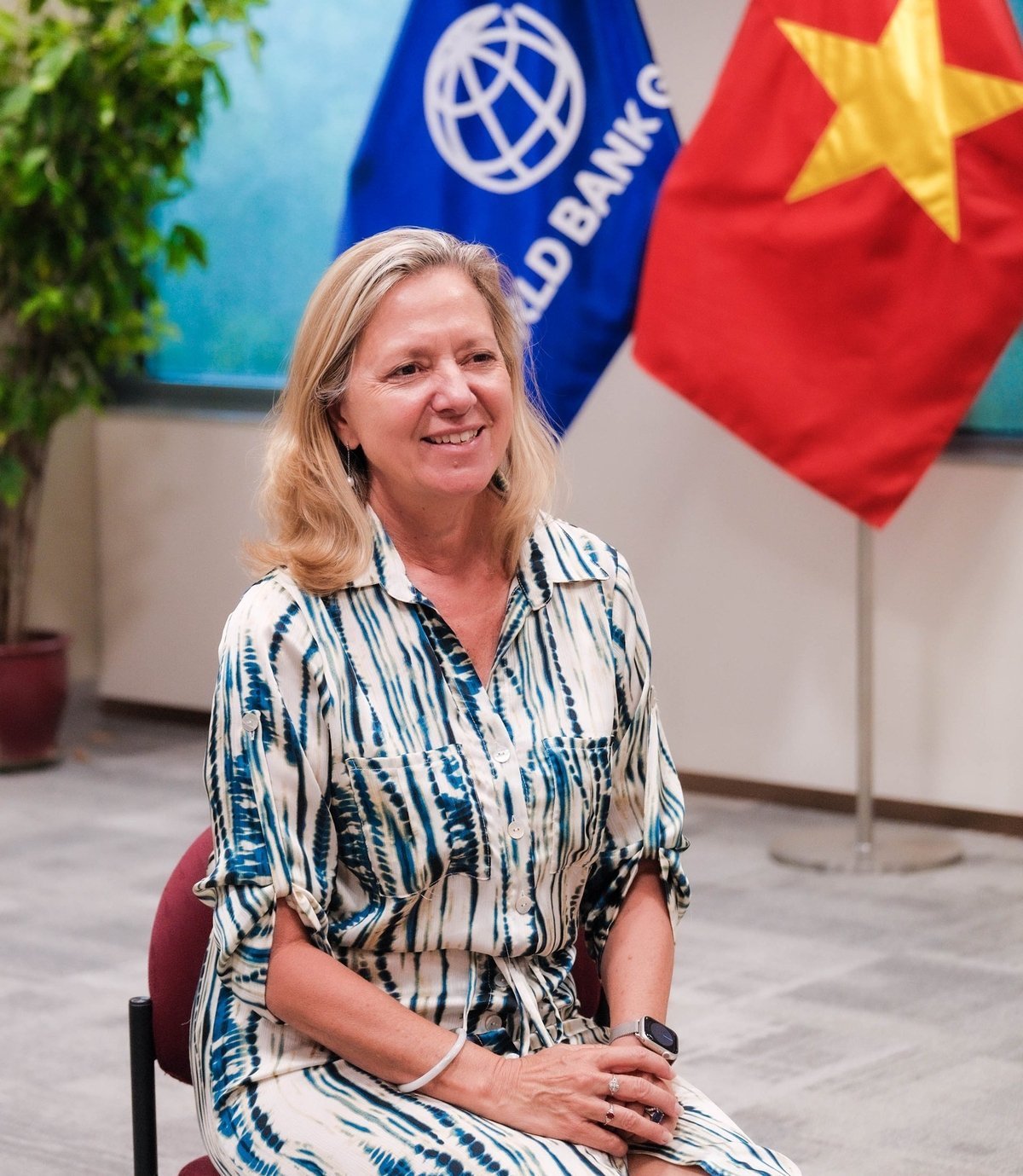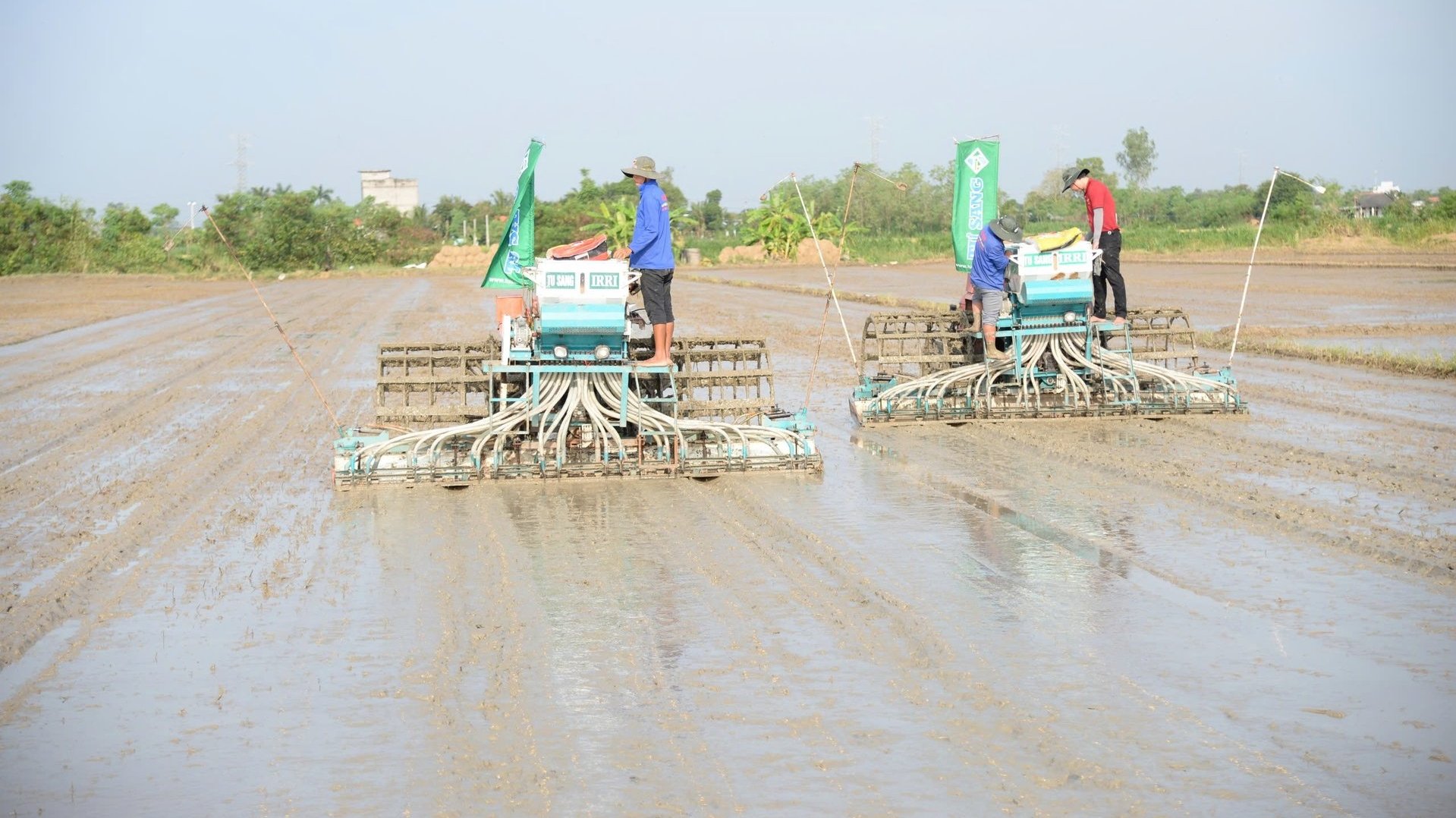December 8, 2025 | 05:37 GMT +7
December 8, 2025 | 05:37 GMT +7
Hotline: 0913.378.918
December 8, 2025 | 05:37 GMT +7
Hotline: 0913.378.918
Viet Nam’s progress since the Doi Moi reforms in 1986 is one of the world’s most remarkable development stories: in under four decades, it went from one of the poorest countries in the world to a vibrant middle-income economy.
According to the World Bank’s “Viet Nam 2045: Trading Up in a Changing World” report, Viet Nam has made impressive achievements in poverty reduction, among the fastest in history. In 1992, nearly half of the country’s population lived below the extreme poverty line of $2.15/day (PPP 2017). By 2020, this rate had dropped to less than 1%.
Perhaps the most striking change is Viet Nam’s global integration. Thanks to its deep integration into global supply chains, trade now exceeds 160 percent of GDP, among the highest ratios in the world. Viet Nam has a 57-million-strong workforce, more than 20 million new jobs created since the Doi Moi reforms, and over 80 percent of its workforce is now employed in the private sector.
From the World Bank’s perspective, this is a story of vision, perseverance, and reform that has delivered real outcomes for people.

Mariam J. Sherman - World Bank Division Director for Viet Nam, Cambodia and Lao PDR, at a press briefing on the occasion of the 80th anniversary of National Day. Photo: Quynh Chi.
The World Bank’s partnership with Viet Nam spans more than three decades, almost as long as the country’s reform journey itself.
To date, we have provided nearly $26 billion in financing, policy advice and global knowledge in key areas to support Viet Nam’s development priorities. The World Bank has invested in infrastructure, education, health, agriculture and social protection, helping to create millions of jobs and expand opportunities for people across the country.
Agriculture and the environment are an important part of our engagement with Viet Nam, particularly through our close partnership with the Ministry of Agriculture and Environment. Over the years, through financial support, policy advice and knowledge sharing, World Bank-funded projects have contributed to modernizing agriculture, promoting innovation in production, sustainable management of natural resources, and enhancing resilience to climate change, thereby delivering tangible results for livelihoods, national food security and sustainable development.

Nhập chú thích ảnh
Throughout, our partnership has always been about more than just financing. It’s about sharing knowledge and global expertise, so that Viet Nam can shape reforms that are its own.
Mariam J. Sherman - World Bank Division Director for Viet Nam, Cambodia and Lao PDR
In recent years, the Climate Resilience and Sustainable Livelihoods Project (2016–2024) in the Mekong Delta has supported more than one million farmers to adopt climate-smart and resource-efficient farming practices. The Viet Nam Sustainable Agriculture Transformation Project (VnSAT, 2015–2023) has implemented a low-emission rice farming model on 182,000 hectares, increasing farmers’ profits by 30% while reducing 1.5 million tons of CO2 equivalent per year.
Following the success of projects in the agricultural sector and in the Mekong Delta, the WB is actively cooperating with the Ministry of Agriculture and Environment to implement the "Sustainable development of 1 million hectares of high-quality, low-emission specialized rice associated with green growth in the Mekong Delta by 2030" program. This program promises to "revolutionize" the rice industry, thereby enhancing the global competitiveness of the Vietnamese rice industry. This is also a model of green agricultural development for countries in the East Asia-Pacific region, and a practical action of Viet Nam towards the goal of Net-zero emissions by 2050.
Our partnership has always been about more than just financing. It’s about sharing knowledge and global expertise so that Viet Nam can shape its own reforms while still drawing on the best experiences from around the world. Given Viet Nam’s impressive development in the past four decades, the country has started to share its experiences with many other countries.
The World Bank’s analytical work, including the Viet Nam 2045 report series, recommends a set of strategic priorities to help Viet Nam sustain growth, avoid the middle-income trap and reach its high-income ambition:
First, supporting private sector development is key to boosting productivity and driving growth, job creation, innovation, and national competitiveness in Viet Nam.
Second, reforms in tertiary education are much needed to upskill the labor force which is also critical to accelerate productivity growth.
Third, while Viet Nam must rebalance growth toward higher productivity, sustained investment—especially in critical infrastructure—remains essential.
Fourth, prioritizing green growth and low-carbon development will drive sustainable economic progress, create green jobs, and protect Viet Nam’s environment for the future.
Fifth, strengthening institutional capacity remains essential to effectively implement these policies and pave the way for a high-income Viet Nam.
Finally, robust mechanisms are needed to ensure that faster growth does not exacerbate inequality and that all Vietnamese can benefit from the country’s transition to high-income status.
Strong institutions are the backbone of sustained development. Research shows countries that successfully transition to high income all share one thing in common: effective and accountable institutions.
Viet Nam has already made important progress by consolidating provinces, streamlining administrative structures through mergers of ministries and departments, and piloting digital government. These reforms matter because they are expected to enhance effectiveness and efficiency, including reduction of red tape for both citizens and businesses.
As the economy grows larger and more sophisticated in structure, stronger institutions will be vital to sustaining strong growth.

The World Bank's resources have supported Viet Nam in developing the national flagship program of one million hectares of high-quality, low-carbon rice. Photo: Quynh Chi.
The World Bank Group stands ready to support the government in building institutions that match the scale of its ambitions.
Ultimately, strong institutions will be the bridge between Viet Nam’s 2045 ambitions and results on the ground.
This is where the World Bank Group aligns with Viet Nam’s ambitions. We aim to move from plain-vanilla IBRD lending to mobilizing private capital through blended finance, guarantees, risk insurance, and project preparation facilitation.
Through the World Bank, IFC, and MIGA, we help establish stable policies and infrastructure that attract investment while directly providing financing, equity, guarantees, and risk insurance to encourage private investment.
Finally, it's a privilege to be here in Viet Nam at this momentous time in its history. I have such deep admiration for Viet Nam's perseverance and determination.
Few nations have advanced so far, so fast, and so inclusively. The World Bank is proud to have been a partner of Vietnam through this journey over the last three decades. It's a remarkable one, one that is looked at by many people around the world, and we're really proud to have been an ongoing partner.
My wish is that Viet Nam achieves its ambitions and growth ambitions, so that not only faster growth but also greener and fully inclusive growth brings continued development benefits to all the people in Viet Nam.
Translated by Quynh Chi

(VAN) At the TARASA25 Conference, participating countries shared experiences on implementing agroecology and regenerative agriculture, contributing to a sustainable transformation of food and agriculture systems.

(VAN) Green industry is becoming a driving force for the development of Hue City, not only promoting economic growth but also protecting the environment, creating the foundation for the Net Zero goal.

(VAN) As of 2025, the ASEAN region has a total of 69 ASEAN Heritage Parks recognized across its 10 member states. Among them, Viet Nam contributes 15 ASEAN Heritage Parks.

(VAN) Yok Don National Park has high biodiversity with numerous endemic plant and animal species, and it is also the only dipterocarp forest ecosystem conservation area in Viet Nam.

(VAN) Viet Nam and Brunei signed two important MOUs on fisheries and IUU, expanding cooperation in agriculture, the environment, and Halal exports, aiming to substantively implement joint projects.

(VAN) The Viet Nam Coconut Association worked with the International Finance Corporation (IFC) and businesses to promote the supply chain, enhance competitiveness, and develop the coconut industry sustainably.
![Hue aims for Net Zero: [2] Pioneering low-emission tourism](https://t.ex-cdn.com/nongnghiepmoitruong.vn/608w/files/huytd/2025/12/04/0633-dulichzero-4-095634_236-161125.jpg)
(VAN) The ancient capital of Hue has developed Net Zero tourism products and models, aiming to reduce carbon emissions and pioneer the establishment of Viet Nam's green tourism destination.